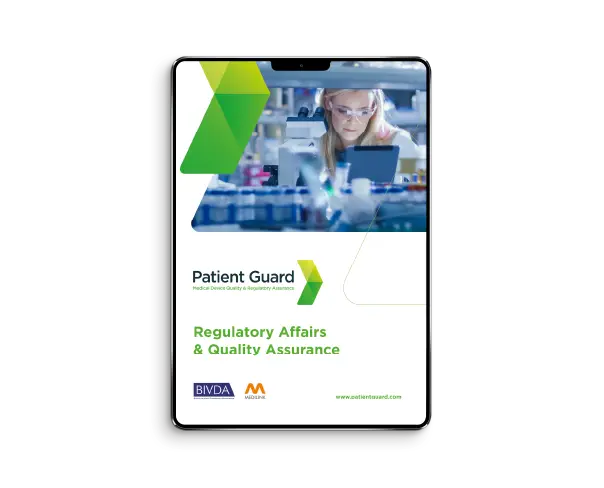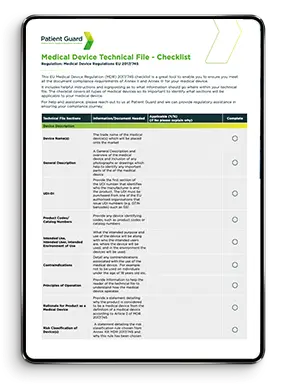What is the difference between Quality Assurance & Quality Control?
Quality assurance (QA) and quality control (QC) are two important concepts in the medical device industry. Although they are related, there are distinct differences between the two. In this blog post, we will explore the difference between medical device quality assurance and quality control.

What is medical device Quality Assurance?
Medical device quality assurance (QA) is a process of ensuring that medical devices are designed, manufactured, and maintained to meet regulatory requirements and standards. It involves all activities that are undertaken to ensure that the device is safe and effective for its intended use. The goal of QA is to prevent problems before they occur, rather than detecting and correcting them after they have occurred.
QA is a proactive process that involves establishing policies, procedures, and guidelines to ensure that devices meet established standards. It includes activities such as:
- Developing and implementing quality management systems (QMS)
- Conducting audits of manufacturing processes and procedures
- Documenting and tracking issues
- Monitoring product performance and safety
- Training employees on quality requirements and procedures
What is medical device Quality Control?
Medical device quality control (QC) is a process of testing and verifying that medical devices meet established standards. It is a reactive process that involves detecting and correcting problems that occur during the manufacturing process or after the device has been released to the market.
QC activities involve monitoring and testing the device at various stages of the manufacturing process to ensure that it meets established quality standards. QC activities include:
- Inspecting incoming raw materials and components
- Conducting in-process inspections to detect defects and deviations
- Conducting final product inspections to verify compliance with established standards
- Testing devices to ensure that they meet performance and safety requirements
- Documenting and tracking quality-related issues
What is the difference between medical device QA and QC?
The primary difference between medical device QA and QC is the focus of their activities. QA is focused on preventing problems before they occur, while QC is focused on detecting and correcting problems that occur during the manufacturing process or after the device has been released to the market.
QA activities involve establishing policies, procedures, and guidelines to ensure that devices meet established standards. It is a proactive process that aims to prevent problems before they occur. On the other hand, QC activities involve monitoring and testing the device at various stages of the manufacturing process to detect defects and deviations. It is a reactive process that aims to detect and correct problems that occur during the manufacturing process or after the device has been released to the market.
Another difference between QA and QC is the stage at which they occur in the manufacturing process. QA activities occur throughout the entire manufacturing process, from design to production to post-market surveillance. QC activities occur during the manufacturing process, specifically during the production and testing stages.
Summary
In conclusion, while medical device quality assurance (QA) and quality control (QC) are related, there are distinct differences between the two. QA is a proactive process that focuses on preventing problems before they occur, while QC is a reactive process that focuses on detecting and correcting problems that occur during the manufacturing process or after the device has been released to the market. By implementing both QA and QC processes, medical device manufacturers can ensure that their products meet established quality standards and regulatory requirements.
FAQs
Quality assurance (QA) is a proactive process focused on establishing systems, procedures, and standards to ensure medical devices meet regulatory and quality requirements consistently. QA involves designing processes that prevent defects and ensure compliance with standards like ISO 13485 and FDA 21 CFR Part 820.
Key insight: QA is about building quality into the development and manufacturing processes from the start.
Quality control (QC) is a reactive process that involves inspecting and testing medical devices to identify and address defects. QC ensures that the final products conform to design specifications and meet safety and performance standards before they are released to the market.
Key takeaway: QC verifies that the output of a process meets the required quality standards.
| Aspect | Quality Assurance (QA) | Quality Control (QC) |
|---|---|---|
| Focus | Process-oriented | Product-oriented |
| Timing | Proactive (prevention of issues) | Reactive (detection of defects) |
| Scope | Covers the entire lifecycle, from design to delivery | Focused on specific stages, like testing and inspection |
| Objective | Ensures processes produce consistent quality | Ensures products meet required specifications |
Key insight: QA builds the framework for quality, while QC evaluates the results.
QA and QC are complementary processes:
- QA: Ensures robust systems and processes are in place to prevent defects (e.g., implementing ISO 13485 QMS).
- QC: Verifies that devices produced under those systems meet safety and performance requirements through inspections and testing.
Pro tip: An integrated QA/QC approach ensures both compliance and high product quality.
- QA: Ensures compliance with regulations like EU MDR, IVDR, and FDA requirements by establishing proper systems and documentation.
- QC: Provides the evidence that devices meet regulatory standards through inspection reports, test data, and batch records.
Key takeaway: Regulatory authorities require a balance of QA (proactive) and QC (reactive) to ensure patient safety and product reliability.
Yes! Patient Guard offers comprehensive support for both QA and QC in the medical device industry, including:
- Developing and implementing ISO 13485-compliant QMS.
- Assisting with risk management processes aligned with ISO 14971.
- Guiding manufacturers through testing protocols and QC practices.
- Preparing documentation for regulatory audits and submissions.
Why choose Patient Guard: With experience supporting over 500 manufacturers, we ensure your QA and QC systems meet global regulatory standards, helping you maintain compliance and market confidence.



